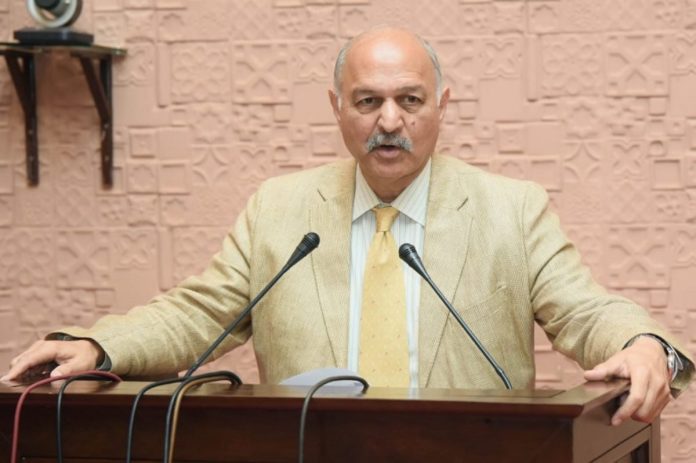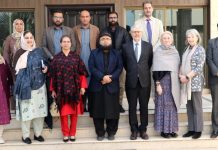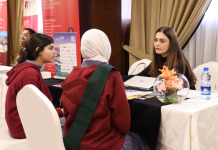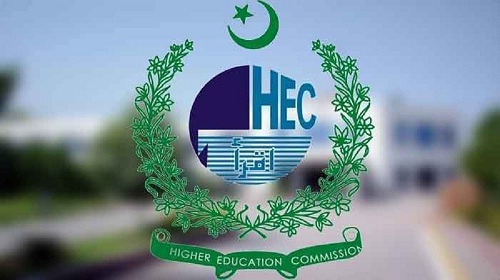ISLAMABAD, JUL 3 /DNA/ – The two-day International Conference on ‘Iran-Pakistan Academic-Cultural Dialogue’ concluded on Wednesday with a resolve from heads of academia from both sides to collaborate in multiple areas and exploit academic and cultural linkages as a bridge to bring the two nations closer.
The conference, aimed at advancing academic and cultural bonds for sustainable Iran-Pakistan relations, was jointly organised by Higher Education Commission (HEC), and Allama Iqbal Open University (AIOU). It hosted a delegation of Vice Chancellors of six Iranian universities, headed by Dr. Seyed Abolhassan Navab, Founder and Chairman of the Board of Trustees University of Religions and Denominations Qom.
Addressing the closing ceremony as chief guest, Senator Mushahid Hussain Syed said that Pakistan and Iran enjoy deep religious, lingual and cultural relations. Pakistan was the first country to recognise Iran as Iran did after the independence of Pakistan in 1947.
The Senator paid homage to the resilience of Iranian nation it demonstrated through the Iranian Islamic revolution and admired the Iranian people for their love for knowledge, their self-sufficiency, and hospitality towards Pakistani nation. He congratulated HEC, AIOU and the Iranian side on successful conclusion of the conference and hoped that the academic engagements on the two sides will further strengthen the relations.
In his remarks, Chairman HEC Dr. Mukhtar Ahmed emphasised that the academic-cultural dialogue was a need of the hour. Felicitating the participants on the completion of the conference, he emphasized the importance of actionable outcomes. He said the intellectual discussions would lead to practical steps, adding that a roadmap for practical measures and a mechanism to check progress will be devised so as to materialise the conference outcomes in letter and spirit.
Dr. Mukhtar Ahmed highlighted the shared issues and constraints between Pakistan and Iran, urging collaboration to resolve them “since no external party will address these challenges”. He stressed the need to work for humanity, and called for steps to end the trust deficit through open-heartedness and by eliminating differences. He lauded the efforts of HEC and AIOU teams for organising the conference.
In his address, the head of Iranian delegates, Dr. Seyed Abolhassan Navab, expressed his gratitude for the hospitality of HEC and AIOU. He hoped that the academic and cultural linkages will pave the way for enhancing political and economic relations. He emphasised the need for removing the prevailing economic hardships in the way of the two countries to improve economic relations and enhance the volume of bilateral trade. He stressed that the two sides must strengthen import and export activities to help each other in the economic sphere.
Vice-Chancellor AIOU, Dr. Nasir Mahmood thanked HEC and the participating vice chancellors and faculty from the two countries for success of the conference and hoped that detailed discussions during the two days will lead to tangible outcomes for different spheres of higher education.
The second day conference covered two group discussions on ‘Academic Cooperation between Pakistan and Iran (Capacity and Opportunities)’ and ‘Cultural Cooperation between Pakistan & Iran (Capacity and Opportunities)’. In the first group discussion, it was proposed that an Iran-Pakistan Universities Centre will be established to serve as a hub for Pak-Iran collaborations. To facilitate faculty collaborations, universities from both countries would take practical steps such as exchange visits and joint research projects. It was emphasised that universities in both Pakistan and Iran should assess their strengths in specialised programmes. Formulation of Pakistan Chairs in Iranian universities and Iran Chairs in Pakistani universities was also discussed.
During the second panel discussion, the panelists explored anticipated opportunities in the cultural realm and agreed that cultural collaboration should extend beyond mere language exchange. They identified categories for mutual collaboration: education, fine arts, film, drama and religious tourism. Both sides emphasised strategic efforts to translate Urdu literature into Persian, collaboration in the celebration of festivals, cultural exhibitions, film, drama, and arts. They stressed the need for a cultural shift within universities and suggested a strategic action plan with clearly defined collaborative outcomes, quantified outputs, and specific timelines for effective results.

















